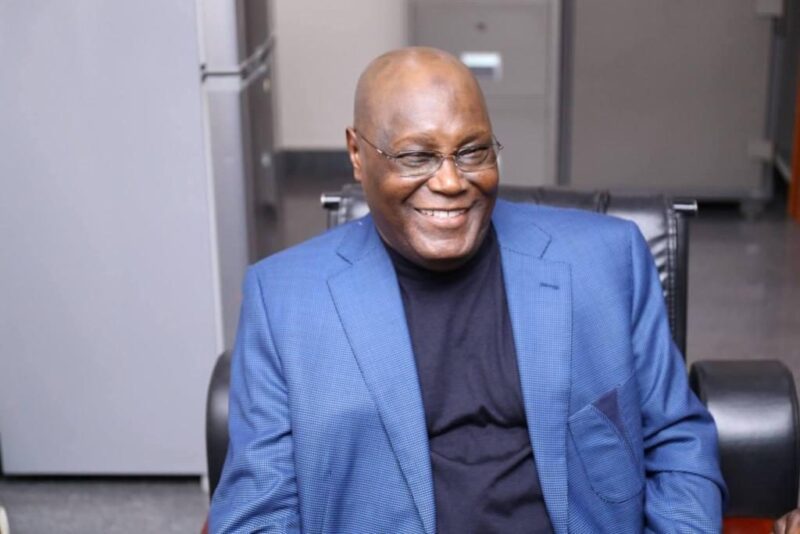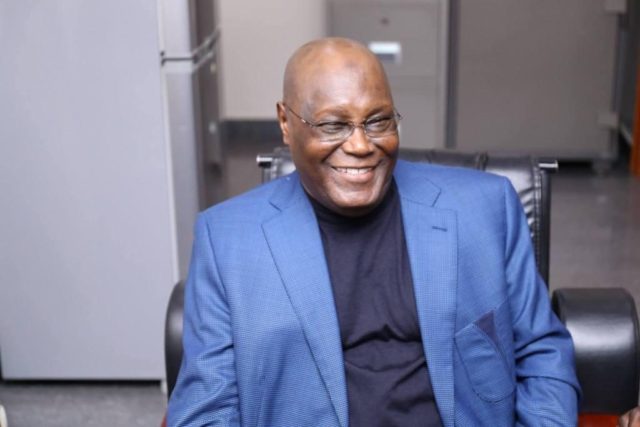Political Issues
Entering the Atiku Era -By Majeed Dahiru

The leadership of post-civil war Nigeria has always been largely determined by prevailing socio-economic conditions in the country at any given time, with national unity as a constant determining factor. This has also been clearly demonstrated since the transition from military rule to civil democratic governance in 1999.
The preceding sixteen-year military rule between 1983 and 1999 left Nigeria socially broken and economically dysfunctional. In addition to reckless corruption and state terrorism that was visited upon the Nigerian people, the annulment of the June 12 presidential election, which was won by Chief M.K.O Abiola, a Southerner, by the Northern dominated military junta of Ibrahim Babangida resulted into a major political crisis in the country. This crisis was to boil over and set the Nigerian state on the edge when MKO Abiola, who was jailed by Babangida’s successor, Sani Abacha, eventually died in detention under very mysterious circumstances. The Nigerian state was shaken to its very foundation with prospects of disintegration as a result of massive resistance to the tyranny of the military junta and protests against the injustice of the June 12 annulment, particularly among Nigerians of the South-West origin, the home region of M.K.O Abiola.

Atiku Abubakar.
Consequently, the political process leading to the transition from military to civil democratic rule in 1999 was primarily driven by the prevailing concern for national unity and cohesion, in order to save Nigeria from imminent collapse. Deliberate steps were taken to evolve a power sharing agreement that shifted power to the South and particularly to M.K.O Abiola’s Western corner. Furthermore, that Nigerian of South-West origin that was going to be trusted with the task pulling the country back from the brink of collapse was one who possesses broad nationalistic credentials and enough ingredients of statesmanship to not only unite Nigerians but also resist the temptation of vengeance. Olusegun Obasanjo, who was considered above others as that Nigerian of South West origin that was most eligible to lead the country at the time, was to eventually emerge as president in 1999. Nigeria was thus ushered into the Obasanjo era for the next eight years from 1999.
The Obasanjo era ushered in a period of unprecedented national unity and cohesion, largely as a result of his ability to deploy his rich nationalist credentials to rally Nigerians across all divides around his governmental agenda. From his kitchen cabinet to Security Council and economic management team, there reflected a common pan Nigerian thread, as individuals from all sections of the country were equitably represented. Having successfully achieved a considerably united, stable and relatively peaceful country, Nigerians then began to contend with another major challenge – the menace of corruption and how to tackle it effectively.
By 2007, the elite consensus adopting the principles of power-sharing and rotation, which was to ensure an equitable distribution of resources to all component parts of Nigeria, had unfortunately degenerated into an elite gang up for the purpose of the sharing of public funds as loot. The modest gains of the Obasanjo era was threatened by the then entrenched culture of corruption that has now corrosively permeated the entire fabric of our society. Obasanjo rightly identified this scourge of corruption and made considerable efforts towards tackling it through the establishment of anti-corruption agencies like the Independent Corrupt Practices and Other Related Offences Commission (ICPC) and the Economic and Financial Crimes Commission (EFCC). As election year 2007 approached, the major concern among Nigerians was the question of personal integrity, incorruptibility and commitment to continue the prosecution on the war on corruption, without prejudice to national unity.
Consequently, Umar Musa Yar’Adua emerged ahead of then Vice President Atiku Abubakar and former military head of state Muhammadu Buhari in the 2007 presidential polls. Atiku was reputed to be a nationalist who could sustain the unity of Nigeria but his image was tarred by corruption allegations from Obasanjo, his then estranged boss. Obasanjo, who assumed the role of the father of the Fourth Republic Nigeria with moral obligation to guide leadership decision, portrayed Atiku as an irredeemably corrupt individual who was part of the ruling elite that were united in looting Nigeria. Buhari, on the other hand, who was reputed for his uprightness and personal integrity was perceived by most Nigerians as a ethno-regional and religious irredentist, whose provincial proclivity would most certainly reverse the modest gains of the Obasanjo era by polarising Nigeria along ethno-regional fault-lines. Therefore, Yar’Adua, who was Obasanjo’s preferred candidate came across as the one that possessed a cross between Atiku’s nationalist credentials and Buhari’s incorruptibility.
In 2011, Goodluck Jonathan, who assumed the presidency after the death of Yar’Adua in 2010, was elected because of the popular quest for a breath of fresh air in Nigeria. Jonathan’s defiance of all odds, including his humble beginnings, to acquire higher education and rise to the highest office in the land was inspiring to many long-suffering Nigerians. As one who was considered an outsider to the ruling establishment, most Nigerians mirrored themselves in him and believed he would use the advantage of power to transform their pathetic socio-economic condition for good. However, by 2015, the Jonathan administration became enmeshed in a series of corruption scandals. There was a consensus of opinion among Nigerians that corruption was at the roots of Nigeria’s seemingly intractable socio-economic malaise. Once again corruption became the issue of concern in the build up to the 2015 elections. Nigerians were subsequently to elect Buhari, a man who was considered to be of unimpeachable integrity and with the capacity to tackle corruption more effectively than Jonathan.
As Nigeria approaches the 2019 elections, the major concern for Nigerians once again is the preservation of Nigeria as a united, stable and cohesive nation state. This concern is as a result of Buhari’s elevation of sectionalism to a near state policy, which has polarised the country in an unprecedented manner. Nigeria is as divided today as it was in year 1966 preceding the civil war. In addition to the issue of national unity, Buhari’s sectionalism has deepened the roots of corruption with its branches spread far and wide. By the same stretch, Buhari’s provincial proclivity in the business of government business has greatly stifled economic growth and undermined national security. Nigerians are poorer, less secure and corruption more entrenched in 2018 than 2014.
The prevailing socio-economic circumstances in Nigeria today projects Atiku Abubakar as the preferred alternative to President Buhari. Nigeria is most likely to be ushered into the Atiku era in 2019. Atiku is like an idea whose time has come, which no mortal force can combat. It is believed by many Nigerians that where Buhari’s sectionalism has divided them, Atiku’s impeccable nationalist credentials will unite them once again and heal the nation’s fault lines. Where Buhari’s lack of economic management skills has stunted Nigeria’s economic development, Atiku’s deep knowledge of economic management will pull the nation out of its economic woes. Where Buhari’s provincial proclivity has undermined the rule of law and non-partisan enforcement, Atiku’s pan Nigerian agenda will uphold the rule of law and enforce order in a fair and just manner to restore national security.
Beyond the concerns of national unity, the issue of corruption remains a fundamental albatross to Nigeria’s overall socio-economic development. Atiku is a prime corruption suspect in the court of public opinion, which is largely shaped by unfounded, unsubstantiated and unproven but entrenched allegations. Atiku will however, do himself a world of good in his final push for the presidency, if he articulates his thoughts on the issue of corruption and clearly outlines his strategies to effectively combat the malaise, if elected.
Majeed Dahiru, a public affairs analyst, writes from Abuja and can be reached through dahirumajeed@gmail.com.



















